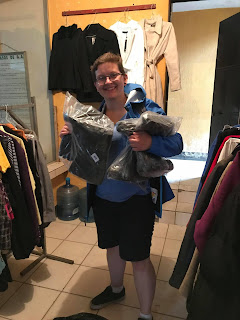Transcription in Kaqchikel. My Experience

Something incredible that I learned while on this trip to the UMD Guatemala Field Station this summer is that simply talking with someone about their day can reveal unique oral narratives. Recording, transcribing, and translating these narratives can aid in the preservation of the storytelling methods in the language that one is studying. in my case Kaqchikel. For my host Doña Güicha and I (and for many people around the world), asking about the happenings in each other’s days is usually where our conversations would begin after a long day of work. I wanted a chance to document those interactions, so I made this recording while we sat together, watching the tortillas heat up on the wooden stove top. In the background the youngest member of our family, 7 year old Daniel, plays with the chair (and occasionally screams). We had spent many nights like this while I was in Patzún, but this had to be one of the most memorable. Tia Güicha, as I fondly called her, is pictured here. She spe




